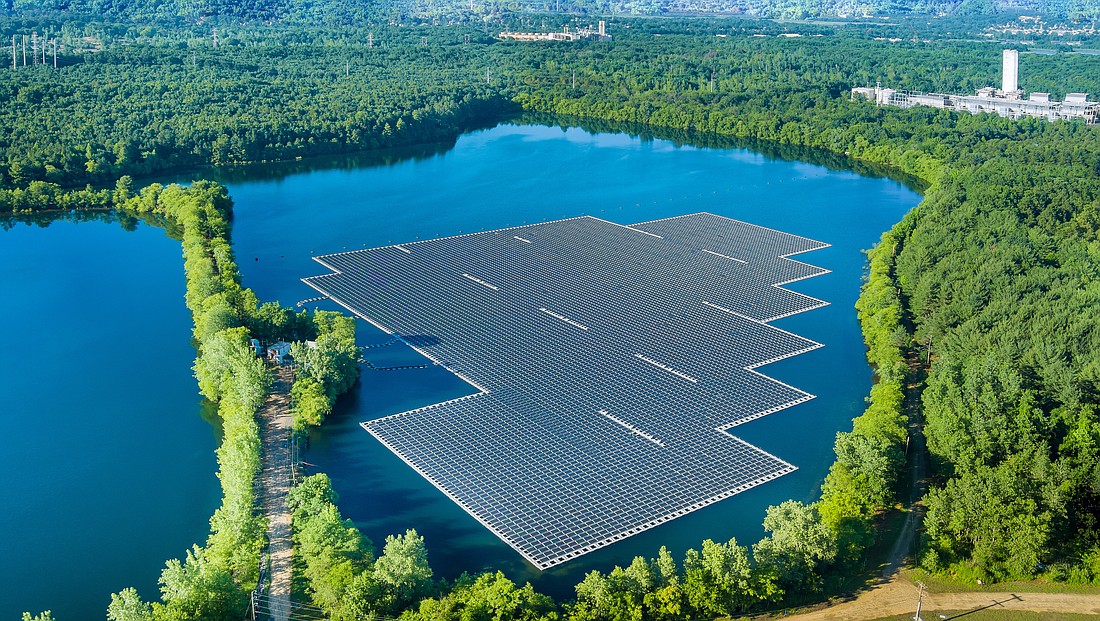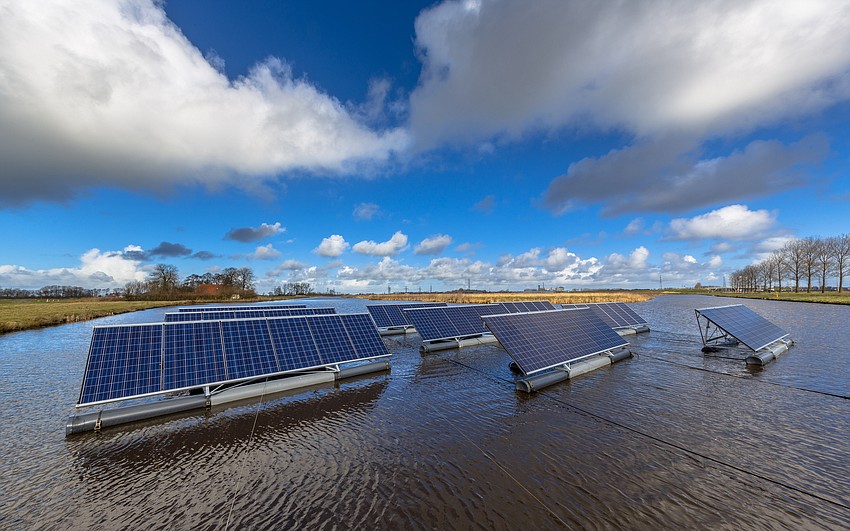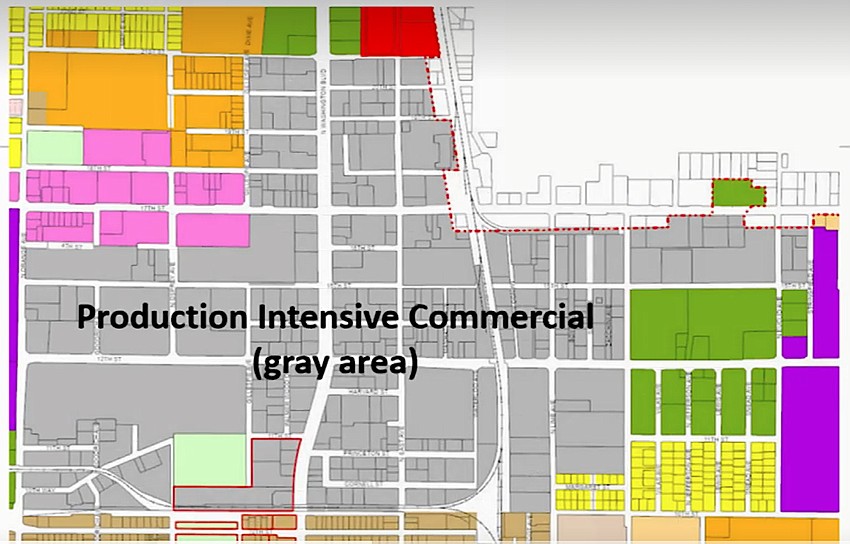- April 25, 2025
-
-
Loading

Loading

Responding to a state mandate that local governments must allow floating solar facilities to be permitted in an appropriate land use classification, the city of Sarasota must prepare an amendment to its comprehensive plan by the end of the year.
A step in that direction was taken at a July 12 public workshop in which Sarasota Manager of Long Range Planning David Smith introduced the proposed text amendment resulting from House Bill 1411, which was codified into law in 2022. A floating solar facility is an energy production facility consisting of solar panels that float over a body of water and convert sunlight into electricity using photovoltaic cells, ostensibly for off-site use.
Unlike solar farms covering dozens or hundreds of acres, the ordinance will permit smaller arrays designed to produce electricity to be fed into the power grid. Call them solar gardens.
With few real opportunities for floating facilities in the city’s production intensive commercial land use classification, Smith said staff is recommending simply “solar utilities” be used to describe solar energy production facility.

The amendment would apply to intensive industrial-zoned land primarily just north of downtown and east of U.S. 41.
“What we're proposing to do with this amendment is revise the text of the production intensive commercial land use classification, that’s our industrial land use classification, by adding solar utilities as a primary use in our production intensive commercial,” Smith said.
Absent any significant bodies of water for floating solar panels in the zoning district, Smith said the proposed text amendment broadens the description. For effective electricity generation, a space of at least 2 acres plus a service building is needed, according to Smith. Around the city, most retention ponds of that size are in residential communities and are not suited to be covered by an array of solar panels.
“For this comprehensive plan amendment, we're recommending the term solar utilities be used rather than just the floating solar facilities,” Smith said. “This would include both ground-mounted solar utilities and floating solar utilities that generate power that's provided to a power grid, which is distributed and used away from the production site.”

As a power production facility, Smith said the city’s production intensive commercial land use classification is best suited for such use. Sarasota Bay is not a consideration because of danger to wildlife, seagrass and recreational boaters.
“We feel that as an industrial type of land use, this classification allows for industrial types of uses such as manufacturing, assembly, warehousing, storage, processing and distribution of goods and services,” Smith said.
The city is required to send the amendment to the state by December. To meet that deadline, hearings before the Planning Board and the City Commission will be scheduled, during and after which modifications may be made. Both of those will be public hearings with the opportunity for citizens’ input. Once transmitted to the Tallahassee, the state’s various agencies will have 60 days to review and send comments back to the city.
Adoption is anticipated in spring 2024, which will require an additional public hearing before the City Commission. A supermajority of four of five votes is required to amend the comprehensive plan.